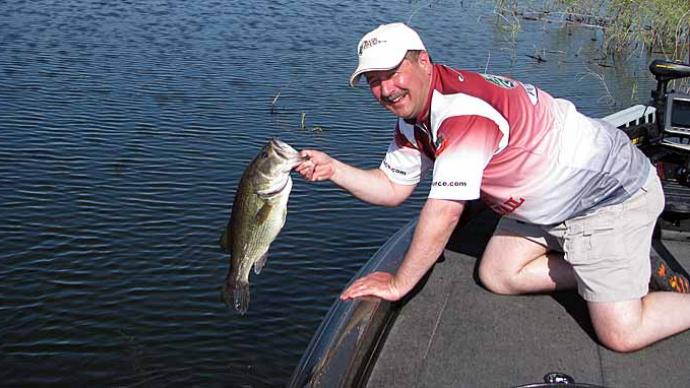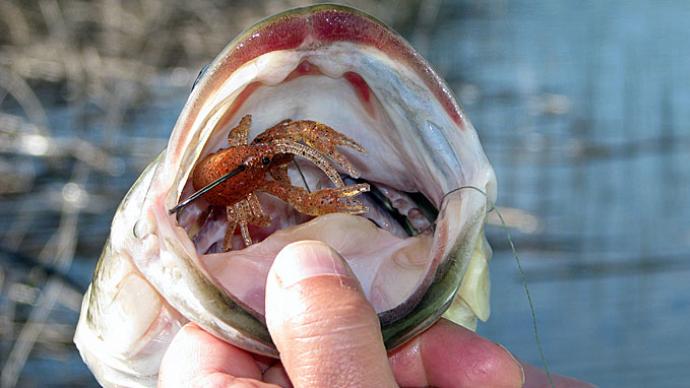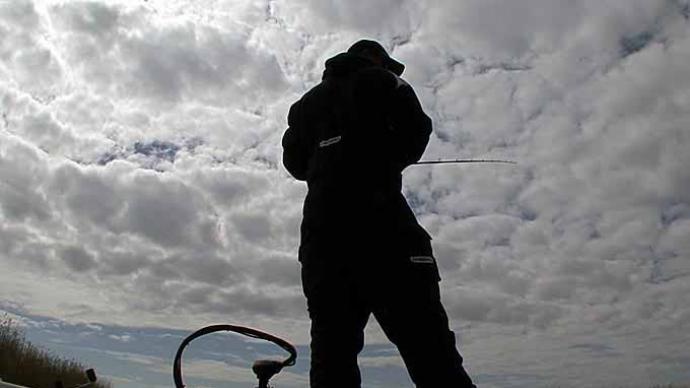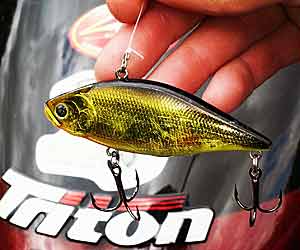
In the fall of the year, the temperatures start to drop, the wind starts to blow, and many anglers put away their rods and reels for the season. If this is your routine, you are doing a massive disservice to yourself and your fishing season.
Statistically, I catch more big fish in October and November. Granted, the weather isn’t always that nice, but you will stay warm long enough to start catching fish if you dress in layers. After that, the excitement of catching big bass will have you stripping off your coat and stocking cap.
One of my favorite and most productive fall techniques is to fish a ¾-ounce Lucky Craft LV500 Max lipless crankbait in, around, and over submerged grass. Although the temperatures are dropping like a rock and the water is quickly cooling, the bass are very active and aggressive. I like to fish fast this time of the year. Some might think I am crazy and fishing way too fast, but I don’t even know if that is possible this time of year.
I try to locate good amounts of submerged grass first, using a combination of electronics and polarized sunglasses. Once I have an area located, I will make long casts along the edges and over the top of the grass, trying to catch the most aggressive fish first. When I do this, I typically have three different colors tied on to offer a different look and take full advantage of my area.
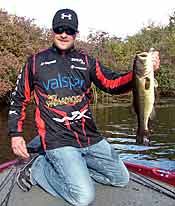
I always have multiple colors tied on because I can make several casts to an area with one color with little success and then throw a different color and immediately get a bass. Then that color will go dead for a while, and the first color I was throwing will start working again. I do not have a scientific explanation for this happening. I suspect it is similar to how humans eat a couple of pieces of sausage pizza and then grab a slice of pepperoni. Whatever the reason, this works for me.
After I make several casts along and over the grass, I then switch it up a bit and purposely allow the lure to fall a little deeper and hang up in the grass. Once it is stuck, I drop my rod tip slightly and rip the lure out of the grass. This fast, erratic movement triggers some ferocious strikes from nearby bass. This whole process of getting hung up and ripping it loose only takes a second or two. It is not long and drawn out and can be repeated multiple times in the same cast if there are no strikes.
The equipment I use for this technique is a 7-foot Med-Heavy rod with a fast tip, 12- to 14-pound test monofilament line and a high speed retrieve baitcasting reel. Because you are using a monofilament line, one essential thing is checking it frequently for abrasions. At the first sign of a weak spot, retie, or you will lose the bass and bait.
Rather than cutting your bass fishing season short by a few months, grab a handful of lipless crankbaits, find some grass and start catching big fall bass.


